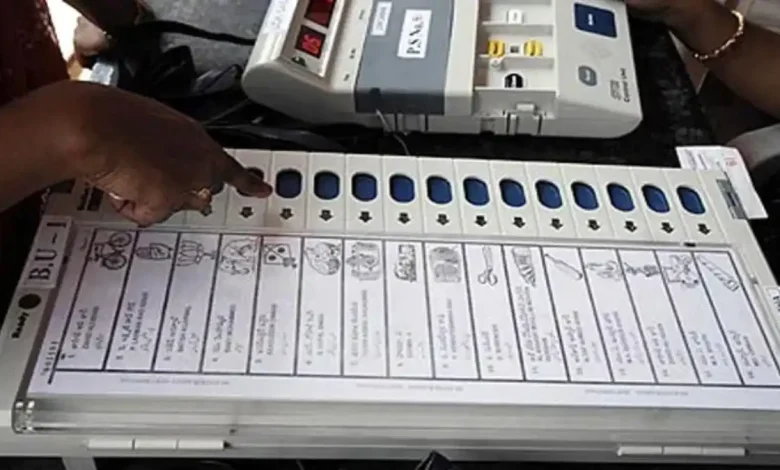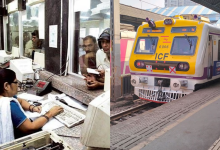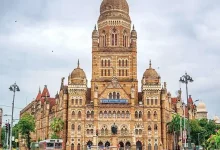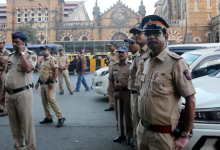Vote for Democracy Report Uncovers Alarming Irregularities in Maharashtra’s 2024 Assembly Elections

A detailed analysis by the civic group Vote for Democracy (VFD), spearheaded by prominent experts, has uncovered significant discrepancies across all 288 Assembly constituencies in Maharashtra’s November 2024 polls, based on data from the Election Commission of India (ECI) and the Chief Electoral Officer (CEO), along with inputs from polling officials and voters.
The report, titled “Dysfunctional ECI and Weaponisation of India’s Election System,” questions the integrity and oversight of the electoral process. VFD is led by experts including M.G. Devasahayam, a retired IAS officer and Coordinator of the Citizens’ Commission on Elections; Professor Pyara Lal Garg, former Dean at Panjab University; Madhav Deshpande, a computer software and architecture specialist; and Professor Harish Karnick, formerly of IIT-Kanpur’s Computer Science department.
Key Systemic Issues Identified
VFD’s findings point to exploitable weaknesses in the electronic voting framework, including microchips for vote recording, Voter Verifiable Paper Audit Trails (VVPATs), Symbol Loading Units (SLUs), and voter lists. The group claims the system shifted from standalone operations in 2017 to internet-connected setups, increasing risks of tampering. It also criticizes the ECI’s voter roll management for causing widespread disenfranchisement, which collectively undermines democratic principles.
The November 2024 elections saw an unusual spike in voter turnout: from 58.22% at 5 p.m. to 66.05% by midnight, adding roughly 48 lakh votes—a 7.83% increase. Notable surges occurred in districts like Nanded, Jalgaon, Hingoli, Solapur, Beed, and Dhule, with some exceeding 10%, far above typical late-hour patterns.
Many races were razor-thin, with 25 seats decided by under 3,000 votes and 69 by fewer than 10,000, indicating minor issues could have swayed results.
Fluctuations in Voter Rolls
Between the May 2024 Lok Sabha elections and the November Assembly polls, voter rolls grew by over 46 lakh, focused in 12,000 booths across 85 constituencies—often where the BJP underperformed earlier. Some booths reportedly added over 600 voters post-5 p.m., implying unrealistic extended polling times.
Disparities appeared in official figures: the ECI listed 9.64 crore voters on August 30, 2024, versus the CEO’s 9.53 crore. Numbers then jumped by more than 16 lakh between October 15 and 30, 2024.
Comparing cycles, the 2019 Assembly rolls exceeded Lok Sabha figures by 11.6 lakh, with votes up by 8.4 lakh. In 2024, rolls expanded by nearly 40 lakh and votes by over 71 lakh. From 2019 to 2024 Assemblies, rolls increased by 71.8 lakh, but votes surged by 96.7 lakh—unmatched by population trends.
VFD highlights abrupt vote gains favoring certain parties. The BJP’s average per segment rose from 88,713 in May 2024 Lok Sabha to 1,16,064 in November, a 28,000-vote boost without demographic justification. Examples include Kamthi, where Congress held steady at 1.35 lakh while BJP gained 56,000, and Karad South, with a 41,000-vote increase in six months. In Nanded, Congress secured the parliamentary seat but lost all six Assembly segments, dropping 1.59 lakh votes despite concurrent voting.
Notable Cases and Procedural Concerns
In high-stakes areas like Nagpur South-West, 29,219 voters were added in six months, surpassing the ECI’s 4% verification limit, with booth staff acknowledging incomplete reviews. In Solapur’s Markadwadi, locals claimed EVM results mismatched actual votes, and police halted a paper ballot mock poll.
Additional issues include routers near booths, power outages during counts, delayed EVM arrivals, CCTV failures, Form 17C mismatches with control units, odd EVM battery levels, and strong room breaches. VFD questions the ECI’s control over EVM source code and notes potential conflicts, as BJP affiliates serve on boards of manufacturers ECIL and BEL.
Changes to Rules and Oversight
The report flags amendments limiting scrutiny: In December 2024, the ECI revised Rule 93 to curb access to CCTV and Form 17C, shortly after a court mandated releases elsewhere. By May 2025, CCTV retention dropped from one year to 45 days, potentially erasing evidence before disputes. Despite full webcasting, footage and VVPAT slips remain unavailable for verification. Over 100 hate speech complaints, including against leaders, went unaddressed.
VFD argues these targeted anomalies suggest organized manipulation, not mere oversights, positioning Maharashtra’s 2024 polls as a model for systemic risks nationwide.
Recommendations for Reform
The group advocates decentralizing elections, limiting the ECI to national polls while State Commissions handle others. It calls for forensic audits of EVMs, VVPATs, and rolls; public access to machine-readable data and records; undoing Rule 93 changes; and laws ensuring full vote verifiability.
[Inputs With Agencia]




